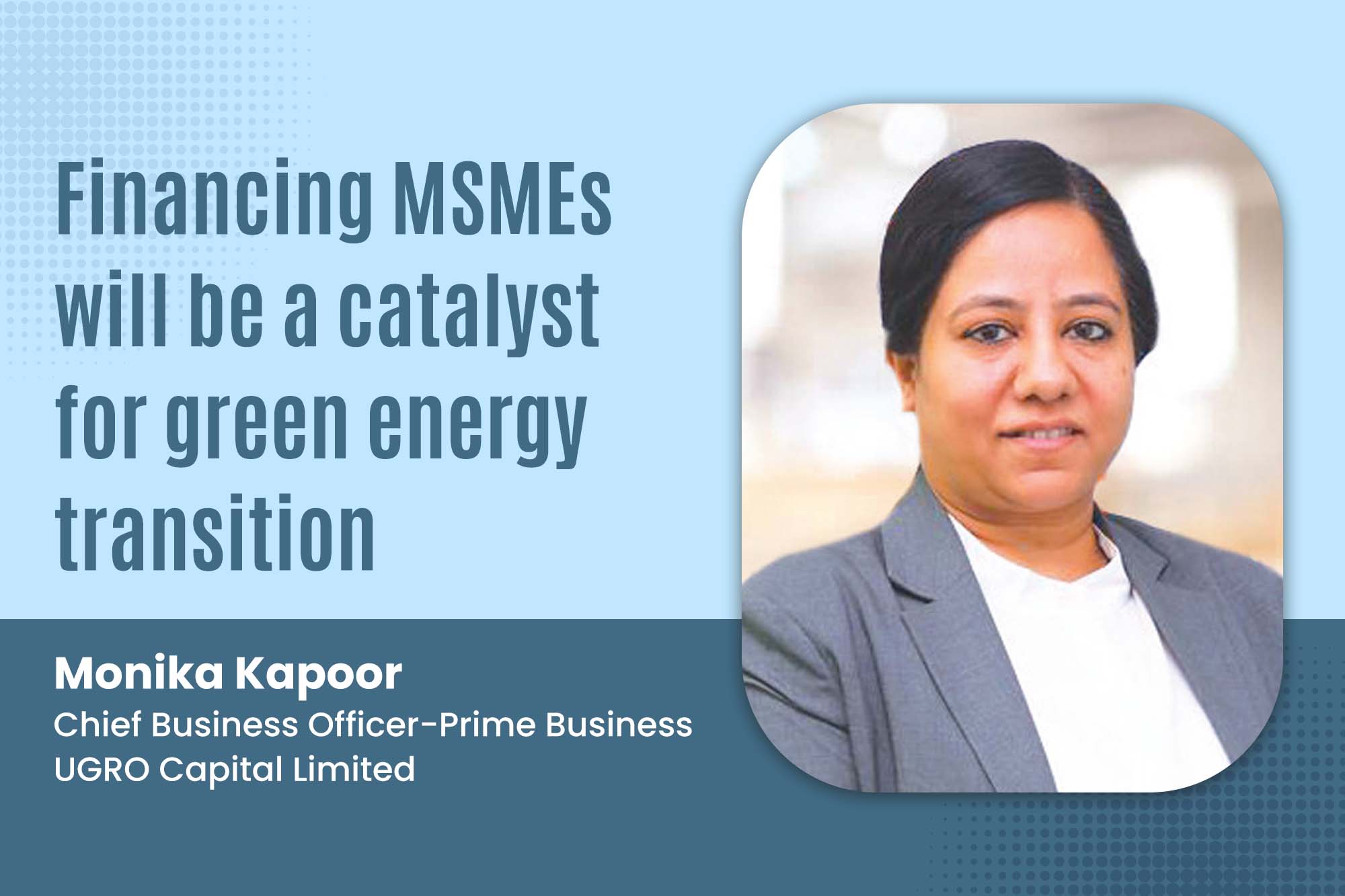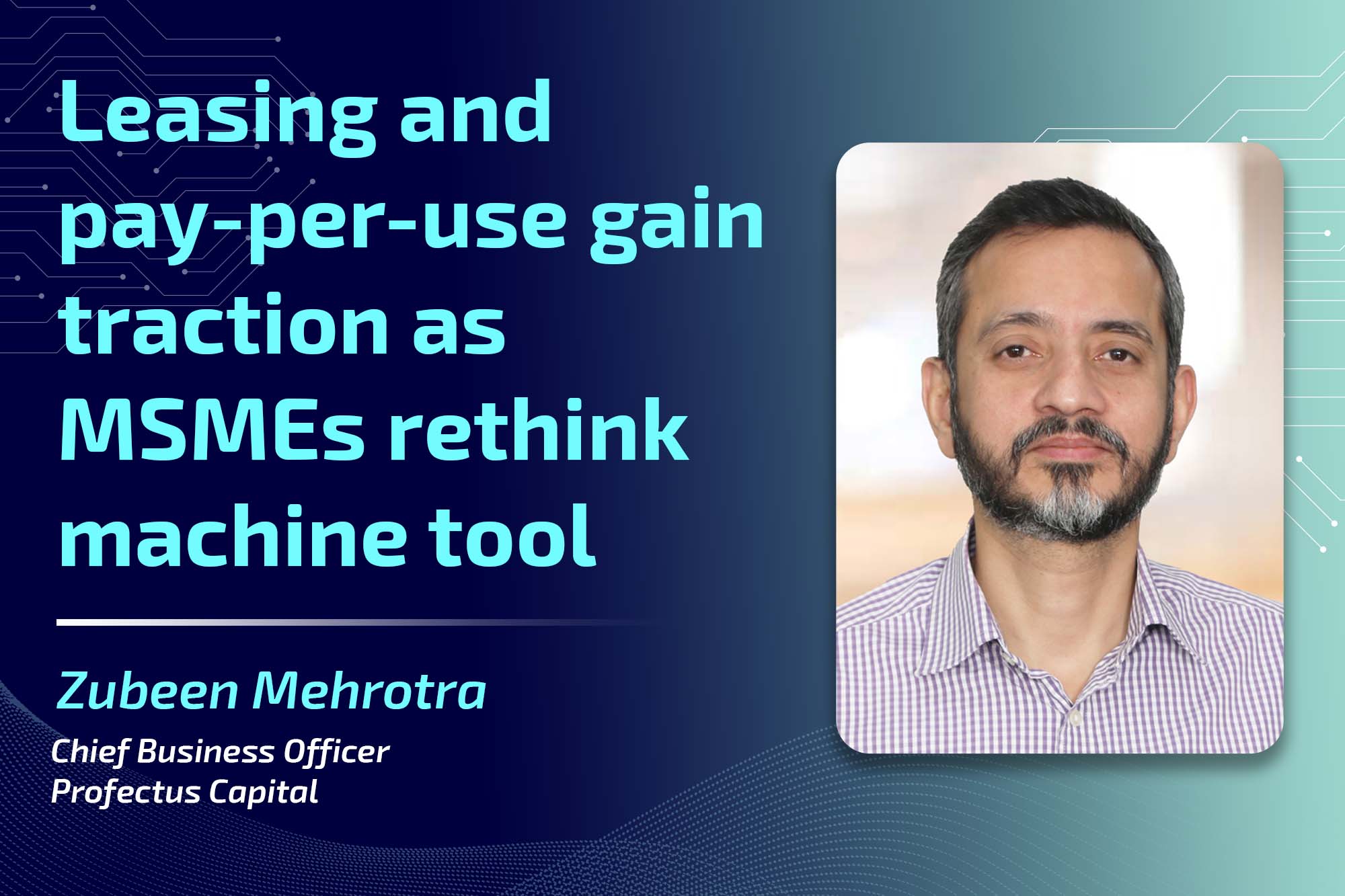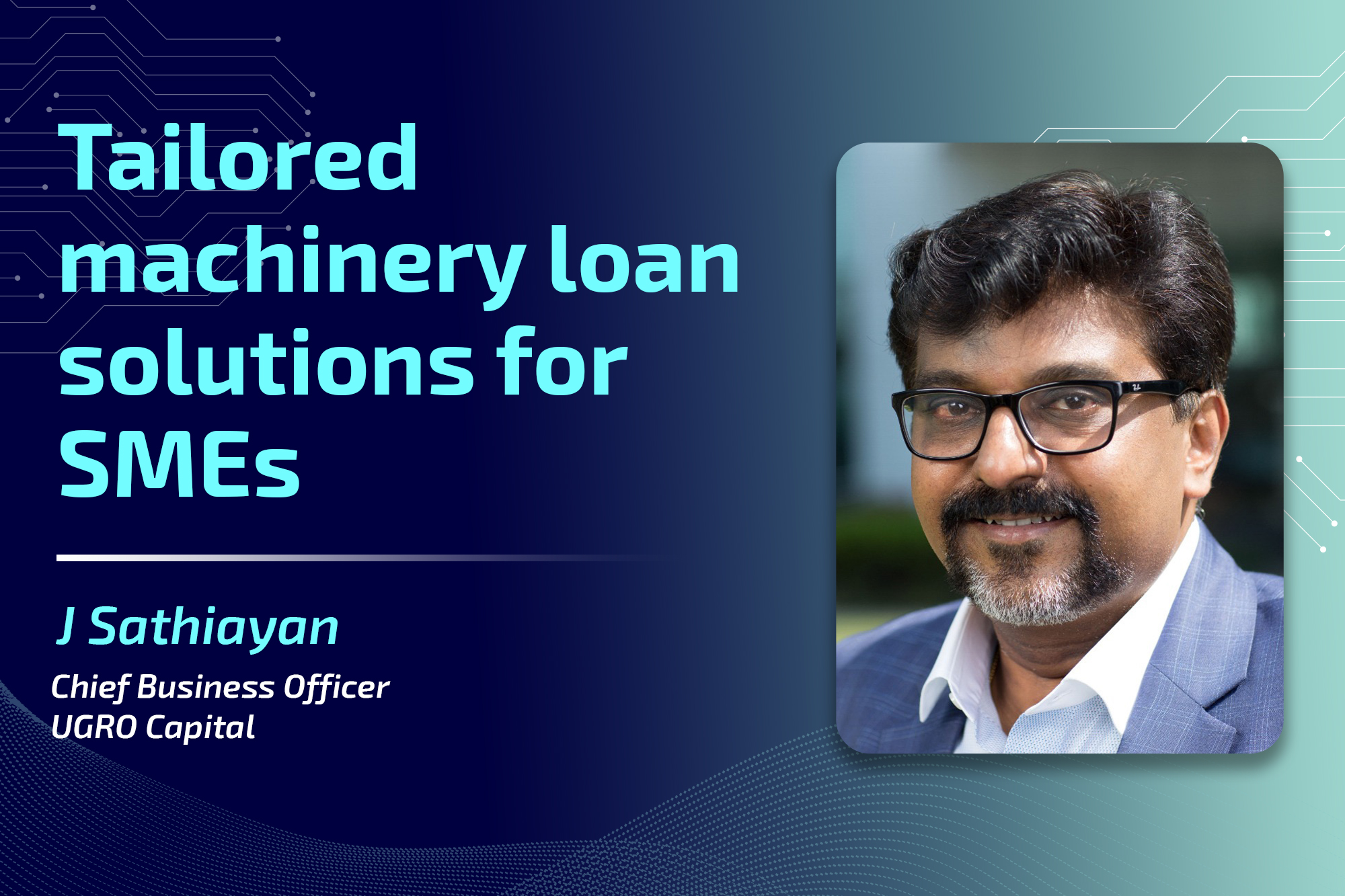Financing MSMEs will be a catalyst forgreen energy transition
By Staff Report November 16, 2024 1:52 pm IST
MSMEs are driving the green energy transition in India by enabling innovation, adoption, and sustainable energy solutions at scale.
India’s renewable energy ambitions are nothing short of monumental. With a target of achieving 500 GW of renewable energy capacity by 2030, we’re standing on the brink of a major transformation. It’s a challenge but, at the same time, a massive opportunity. While the headlines often focus on largescale projects, another equally important player in this story is the Micro, Small, and Medium Enterprises (MSMEs).
MSMEs are fuelling the renewable energy revolution. Their innovation, agility, and widespread presence mean they can drive sustainable energy adoption at the grassroots level. The issue is to figure out this vast untapped potential.
MSMEs and the Green Energy Equation
MSMEs have stepped up in various sectors, along with renewable energy. The renewable industry thrives on innovation, and MSMEs are agile enough to pivot, adapt, and innovate faster than larger entities. But beyond innovation, there’s an important statistic: MSMEs consume nearly 25% of the total power used in the industrial sector, most of which is from thermal sources. If they transition to renewable energy—whether through solar, wind, or other alternatives, there would be a significant reduction in India’s carbon footprint.
Additionally, MSMEs are critical in manufacturing components like turbines and solar panels, which power this green revolution. But even with all this potential, MSMEs face substantial roadblocks, particularly in accessing the capital needed to participate meaningfully in the renewable energy movement.
The financing hurdles
Traditional lenders often view MSMEs as risky due to their scale or insufficient collateral. According to a World Bank study, 40% of MSMEs in developing countries struggle with poor or limited access to formal credit.
The high cost of financing compounds the issue. Renewable energy projects require long maturation periods, but MSMEs typically have to deal with high interest rates and short repayment periods. This discourages many MSMEs from pursuing green energy projects despite their potential.
The role of DSAs
This is where Direct Selling Agent (DSA) networks can transform the landscape. DSAs identify and connect MSMEs with the right financial solutions. They bridge the gap between lenders and MSMEs by offering on-the-ground insights, understanding business needs, and facilitating smoother access to financing for green energy projects. With the right DSA outreach, MSMEs can navigate complex financing structures and find tailored solutions that work for their specific business models.By tapping into the DSA network’s strength in building relationships, MSMEs can better understand and access renewable products which offer longer-term and lower-risk financing options.
Innovative financing solutions
Some other financing mechanisms that could make a real difference include: – Green Bonds: India’s green bond market is booming, providing a stable, longterm financing option for MSMEs. Green bonds attract domestic and international investment, benefitting the MSME sector immensely.
Data-Tech Lending: Lenders often evaluate creditworthiness using traditional metrics like financial history and tax returns, which many MSMEs lack. Data-tech lending uses alternative data (e.g., GST returns, cash flows, order books, etc.) to assess creditworthiness better. This opens the door for more MSMEs to secure financing. – Blended Finance: Combining public and private funds reduces the cost of capital and mitigates risks. This approach has seen partnerships like the India Climate Finance Partnership, which mobilises private investment in climate-smart projects, including renewable energy ventures for MSMEs.
A real success story
India has witnessed several notable examples of how innovative financing has empowered MSMEs in the renewable energy sector. Take the Indian Renewable Energy Development Agency (IREDA), which has introduced tailored schemes that provide MSMEs with concessional loans and financial aid, facilitating their involvement in renewable energy projects. Additionally, a collaboration between a subsidiary of Tata Power and the Small Industries Development Bank of India (SIDBI) has been instrumental in promoting solar energy adoption among MSMEs by offering loans specifically for rooftop solar installations. Similarly, Suzlon Energy, a major player in wind turbine manufacturing, has partnered with MSMEs for component manufacturing and installation, fostering innovation and job creation in the renewable energy ecosystem.
MSMEs’ creativity and perseverance pave the way to a greener future, but their success in green energy requires robust financial and strategic support.
Cookie Consent
We use cookies to personalize your experience. By continuing to visit this website you agree to our Terms & Conditions, Privacy Policy and Cookie Policy.











